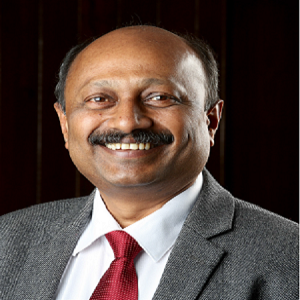Experiential Learning Revolution: Witnessing Knowledge in Action
 In an interaction with Higher Education Review , Dr. Aswath M U, Principal at Bangalore Institute of Technology, shared his insights on various aspects of the challenges to be faced when implementing experiential learning as well as the key benefits of experiential learning compared to traditional classroom-based learning and more. Dr.Aswath M U holds more than 25 years of professional experience as a structural consultant. He served as President of the Association of Consulting Civil Engineers (India) and as Vice-President of Indian Concrete Institute; prior to that, he was an Academic Senate Member and Chairman of the Board of Studies at Visvesvaraya Technological University.
In an interaction with Higher Education Review , Dr. Aswath M U, Principal at Bangalore Institute of Technology, shared his insights on various aspects of the challenges to be faced when implementing experiential learning as well as the key benefits of experiential learning compared to traditional classroom-based learning and more. Dr.Aswath M U holds more than 25 years of professional experience as a structural consultant. He served as President of the Association of Consulting Civil Engineers (India) and as Vice-President of Indian Concrete Institute; prior to that, he was an Academic Senate Member and Chairman of the Board of Studies at Visvesvaraya Technological University.
Witnessing today’s cut-throat competition, Experiential Learning method is crucial for the new-age students because the traditional classroom instruction looks like falling short in preparing individuals for real-world challenges. This powerful educational approach places students at the center of their learning experiences. Unlike traditional classroom instruction, experiential learning emphasizes hands-on, real-world activities that actively engage learners. This approach is crucial for several reasons. First, it fosters a deeper understanding of concepts and skills. When students directly participate in activities related to the subject matter, they are more likely to grasp and retain the knowledge, as it becomes tangible and applicable. Also, experiential learning cultivates critical thinking and problem-solving skills by equipping students to surpass upcoming challenges and making decisions in real-life scenarios. This ignites the ability of the young brains to adapt and find solutions skills that are invaluable and irreplaceable.
What are some challenges to be faced when implementing experiential learning?
Experiential learning is very specific especially in the perspective of school education and implementing this new-age approach brings in a lot of scope. However, in higher educational institutions not many people talk about experiential learning. Since a decade or so people are getting normal withexperiential learning initiatives at higher educational institutions.Implementing experiential learning can be highly beneficial, but it comes with its set of challenges. Let’s explore the major ones.
Curriculum Integration: Integrating experiential learning into existing curricula can be difficult and it takes a while to align activities with learning objectives and create a structured plan for implementation.
Diversity & Inclusion: Experiential learning opportunities must accessible and inclusive for all students with no biases in selection and provide accommodations.
Resource Constraints: Limited time, budget, and access to suitable resources or facilities can be a challenge.
Student Engagement: Some students may be resistant to experiential learning or struggle with self-directed learning.
Faculty Training: Faculties must trained effectively to facilitate experiential learning. Offering professional development and support for all educators to adapt their teaching methods is very challenging.
In your view, what are the key benefits of experiential learning compared to traditional classroom-based learning?
As we know, traditional learning, or didactic learning, is a structured approach where students receive instruction from a teacher or lecturer and are expected to absorb and retain information through lectures, readings, and other forms of instruction. Here there is no specific learning methodology. We need to understand the level of each student, evaluate their learning capabilities, conclude if they are a slow or fast learner then craft a personalized learning methodology. Meanwhile, experiential learning stands out by being a more hands-on approach to learning. Here students actively engage with the material through real-world experiences, experimentation, and reflection. In general, Experiential learning approach is a complementary to the regular traditional learning. It brings in various methods and a lot of activities into the teaching which indeed need to be introduced parallely to regular teaching curriculum. However, to make this possible an inclusive supportfrom the teaching community, from the management of the higher education institutions and also the role played by the industry is very much critical.
How can we ensure that experiential learning activities are inclusive and accessible to all participants, regardless of their background or abilities?
The words correctly highlighted by Stephen R. Covey, “Strength lies in differences, not in similarities” never fails to explain the importance of diversity and inclusion. And, indeed when people come together regardless their background and abilities, happens miracle. So, it is very much essential to ensure that the implementedexperiential learning activities are inclusive and accessible to all participants. In our college what we have done is we conduct a pre analysistest (course beginning survey) of the students once they join the institution. Then we proceed with understanding their capabilities irrespective of their background.My personal belief is when we run an institution without any discrimination, students with different capabilities starts learning the same way. Additionally, for a wholesome growth of the students institutions need to provide opportunities involved with other organizations, collaborate with industries, teach them what is required through which the true objective of education can be achieved.
Conclusion
The bottom line is; the purpose of education is not to make the studentseligible for a job or to prepare a talent force for the job market. It is time for students to learn more about the world where we are living, the environment, the society and sustainability. They must be sensitive towards the society and all of them should collaborate with each other to provide new-age solutions to the modern problems.

.jpg)